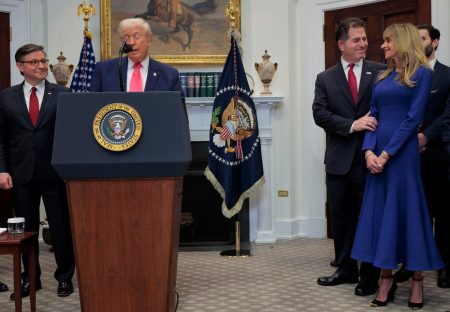Sahil Bloom recently shared a jarring stat: “By the time your child turns 18, you’ve spent ~95% of the time you will ever spend with them in your lifetime,” based on research from the American Time Use Survey done by Our World in Data.
At first glance, many parents feel a sting of, “Geez, am I being [or have I been] a poor steward of the limited time I’ve been given to spend time with my kids!?” But I don’t think this is a revelation rooted in guilt.
Furthermore, as someone with two older kids (21 and 19) and one much younger (17 months), I can tell you that some of the most priceless moments I’ve spent with the older kids occurred after they were 18.
And perhaps that’s the point. This statistic is simply a reminder to heighten our awareness, to better appreciate those younger moments that often feel more like monotony or even drudgery—and then to do a better job crafting experiences that will maximize those valuable memories that we hope will mark our relationships with friends and family at any age.
And by the way, spending money on experiences is the way to get the most bang for our buck. Or, as Kumar, Killingsworth, and Gilovich put it in their 2020 study, “People derive more satisfaction from experiential purchases (e.g., travel, entertainment, outdoor activities, meals out) than material purchases (e.g., clothing, jewelry, furniture, gadgets), both in prospect and retrospect.”
So, how can we maximize these experiences—these memories we’re creating—and increase the rate of return on the money we invested? Perhaps from an unlikely place. I recommend applying an evidence-based approach to relationship management that I learned from author, consultant, and former actuary Mo Bunnell:
1. Listen & Learn
One of the best pieces of parenting advice I ever got was that, to optimize the lessons I hope to instill in my children, I need to give up on the proactive lecture [sigh] and instead be ready to deliver the important (and hopefully concise) insight reactively, at the moment that the kids express their curiosity.
While I’ve not always followed this excellent advice, it has borne much fruit when I have— especially on the big stuff. With stuff like faith, family, work, money, education, sex, drinking, drugs, and rock-and-roll, it’s been more natural to address these matters when the kids make a comment or ask a question. And trust me, parents, if we have ears to hear, they will signal their curiosity, and we will learn from our kids.
This works no differently in crafting the best experiences of any size or scope, and with anyone, but especially our family members. If and when we become students of those we love, they will show us what interests them.
2. Create Curiosity
Then, we have an opportunity to pour fuel on the fire of that nascent curiosity. If your kids show interest in trains, why not ask them on a Saturday morning if they would be interested in going to a nearby train station? If they show interest in plants or flowers, ask them if they might like to plant a seedling or build a raised-bed garden with you. They show interest in music, ask them if they’d like to go to a concert.
Now, I realize that we can’t make every shred of curiosity into an extravagant occasion—and nor should we. Money is great memory fuel, but while most experiences cost something, they need not be expensive to captivate our attention and leave a meaningful mark.
3. Build Together
And with kids (of any age), we may need to redirect their curiosity into a more reasonable (or less costly) direction—but without putting a wet blanket on their inquisitiveness.
“Well, going to the moon may not be in the cards, but what about a trip to the planetarium?”
“What’s a planetarium?”
“Ooh, it’s a special place where…”
One of the keys to memory maximization is giving our loved ones a chance to have some agency in the experience we’re planning. You might love live music, and you may have good reason to introduce your kids to music you love—but what about asking them who they would like to see in concert?
Maybe you even create a rhythm of going back-and-forth between who chooses the next musical act you’ll see. This is an approach that I have directly benefited from, as I’ve now had unforgettable experiences seeing U2, Kendrick Lamar (twice), Mumford & Sons (twice), JID, My Morning Jacket, J. Cole, Tame Impala, and many smaller acts, all with my young adult kids—and you can guess which ones were their ideas. (You might be surprised. 😊)
4. Build Up and Look Back
Here, we divert from Mo Bunnell’s method and back to the wisdom gained from the above-referenced study: “People derive more satisfaction from experiential purchases … than material purchases … both in prospect and retrospect.” (Italics are mine.)
You know this to be true, right? One of the key factors adding to our most memorable experiences is anticipating that experience and rehashing thereafter.
Before all those concerts, for example, we made up playlists enshrining our favorite songs that we would listen to weeks in advance and on the way to the show. Then afterward, we’d bounce back-and-forth discussing our favorite moments of each show—and creating a sharable playlist from the night’s setlist.
Now, years beyond any of those events, every time one of those songs comes on when we’re all together (or apart), we’re immediately taken back to the sights and sounds of these indelible memories.
The total value derived from those memories has long ago exceeded any investment—and that is my hope for you.
So, what memory can you begin planning to maximize this week? What information have your loved ones already shared that you can use to spark their curiosity? What experience can you build together, anticipate, and remember forever?
P.S. I had the opportunity to talk to Sahil Bloom recently about his new book, “The 5 Types of Wealth,” which was the inspiration for this post. You can click HERE to enjoy that conversation.
Read the full article here








